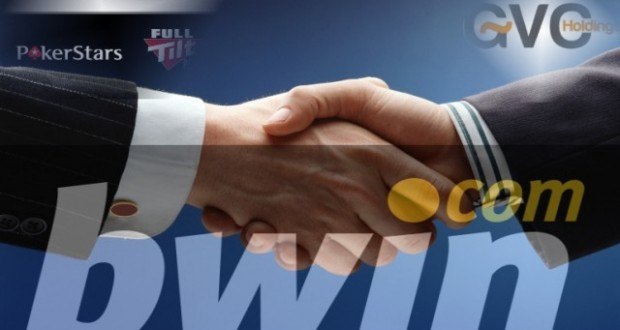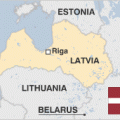
GVC & Amaya Lower Bid For Bwin.Party Acquisition, But Talks Look Strong

GVC & Amaya, the latter the owner of PokerStars and Full Tilt, are trying to reach a deal with bwin.party, but nothing has been solidly confirmed as yet. (Image: foxbet.gr)
GVC & Amaya have been interested in buying bwin.party for months, and now it looks like the deal may come together in the next few days, according to bwin’s board of directors.
But the delays in the deal appear to have cost bwin a cut in the buyout price that amounts to more than a $300 million downdraft.
After submitting a bid in May for $1.7 billion in cash and newly issued GVC shares, a follow-up proposal has been offered at £900 million ($1.38 billion),
“We are still engaged in discussions with bwin and can make no further comment,” a GVC spokesman told London’s Financial Times, the first outlet to break the news. Shortly after the first bid was submitted, Amaya confirmed its participation with GVC, saying in a press release it had agreed to jointly finance the bwin.party acquisition.
The latest comments came from GVC CEO Kenneth Alexander, who noted that “… Based on our experience with the successful Sportingbet acquisition and restructuring, we believe that the potential combination of GVC and bwin.party would result in substantial financial and operating synergies and represent an excellent opportunity for both GVC and bwin.party shareholders.”
It all adds up to a crystal murky situation, with all parties saying nothing is carved in stone just yet. But it appears that bwin’s other interested buyer 888 Holdings is no longer being mentioned as a real contender. 888’s offer amount was never publicly disclosed.
Grecian Earn
On the heels of the economic disaster currently being experienced in Greece, markets are struggling worldwide as investors typically become bearish when a country is vulnerable, especially when it’s a member of the European Union and could potentially affect the 28 other member states.
Greek voters said no this week to a referendum that would have given a bailout to the country under strict conditions that pensions and spending would be diminished greatly. Instead, Greece wants to continue spending money it doesn’t have, and believes its European creditors, including the Central Bank and International Monetary Fund, should help cover the country’s debt of 320 billion euros ($353.1 billion).
The volatility has hampered growth in many countries around the world, which is perhaps one reason for GVC & Amaya downgrading its offer for the digital entertainment company, but of course, that is only speculation on our part.
Investors Unimpressed?
Though talks of an acquisition typically send a stock price soaring as companies generally bid higher than the business is currently trading, the opposite held true this week for bwin.party. Shares of bwin.party fell 1.49 percent on Wednesday as the revised bid was publicized, and GVC also suffered as its stock went south 2.73 percent.
The bwin speculation perhaps hurt GVC more substantially than the day’s trading indicated, as the company released a strong earnings report for the first half of 2015 showing gaming revenue up 14 percent.
Daily gaming wagers for January through June averaged €4.5 million ($4.97 million), netting GVC more than $733,000 in daily revenue. “The board remains confident for the outlook for the remainder of the year and beyond,” noted Alexander.
So why do investors appear to be less optimistic? Because as bwin so pointedly says on its website, “Our focus is on Europe.”
Over the last 30 days, stock indexes in the United Kingdom, France, Spain, Portugal, Italy, Poland, and nearly every other EU country has seen its markets fall, and in some cases drastically. The Financial Times 100, a list of the top companies in the UK, has lost 4.41 percent of its overall value in the last month, and the Euro Stoxx 50, an index of Europe’s leading blue-chip companies, is down 4.06 percent.
Though bwin.party’s portfolio of brands includes sports betting, online poker, and other Internet betting foundations with strong revenue streams, investors are struggling to buy-in on the gambling company because it’s seen in their eyes as, well, a gamble.















0 Comments